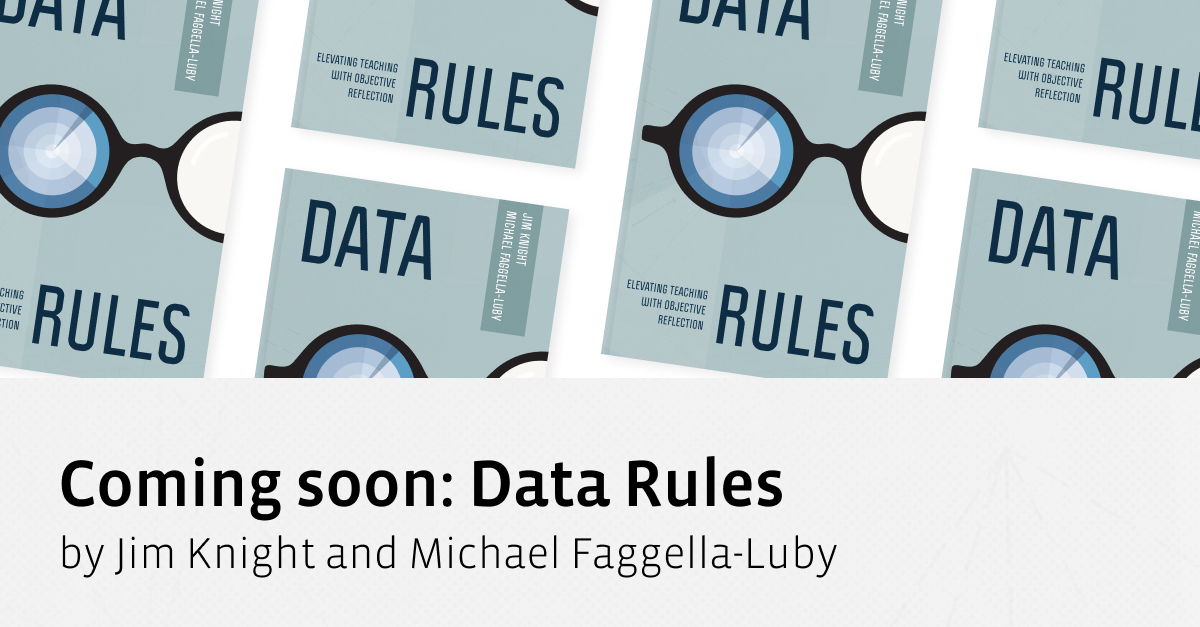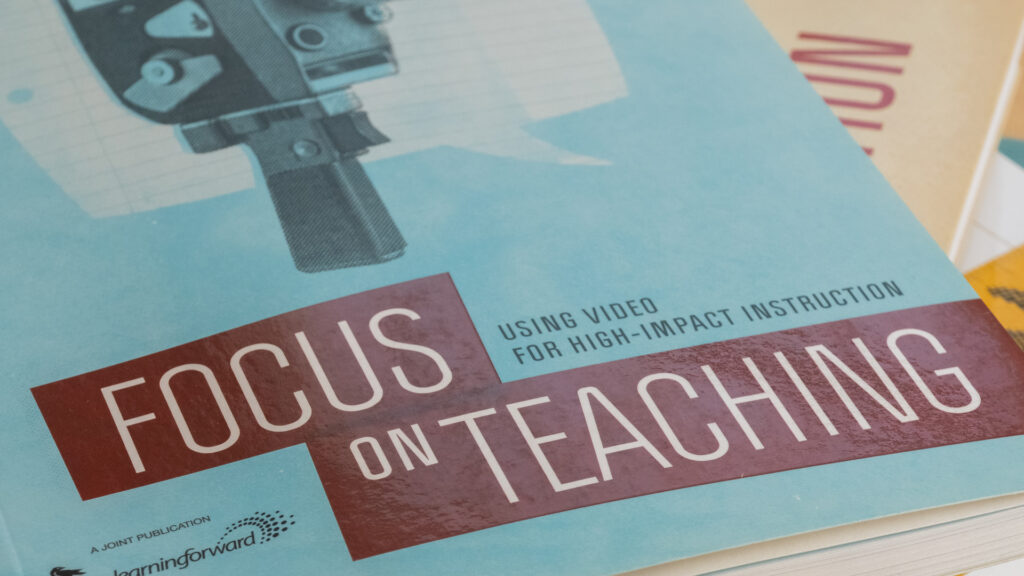This fall, Jim Knight and Michael Faggella-Luby will be releasing their newest book called Data Rules: Elevating Teaching with Objective Reflection. Below we have included a sneak peek into the book. Read the Data Rules preface and bookmark this post. Once preorders are available, we’ll add a link here!
Preface
We admit it. Data generally don’t make for the most exciting topic of conversation. When people ask us what book we’re working on and we mention data, most of the time only the nerdiest of the nerds seem to respond with excitement while others quickly move on to other topics or turn away to other conversation partners. Then again, maybe you are like some of our friends who think differently about data. If not, we hope this book will change your mind.
To us, data are important, fascinating, and at the heart of meaningful change. If we want to get better at almost anything, we need data. Whether we want to qualify for the Boston Marathon, lose ten pounds, save up for a home, or empower our students, data are essential. Data help us see where we are, where we want to go, and how much progress we’re making on our journey to our goal.
Used effectively, data can be motivating, illuminating, and incredibly helpful. Used ineffectively, data can suck the life out of us, decreasing morale, knocking down the esteem of everyone on the receiving end. In short, data are powerful and essential, but must be used appropriately.
While doing some of the original research on instructional coaching with school districts in Kansas, Jim and his team realized that they needed more clarity around how to provide support to create learner-friendly classrooms, set goals, and measure improvements in classroom culture. Jim reached out to Randy Sprick, the founder of Safe and Civil Schools and one of the originators of positive behavior supports, and Wendy Reinke, now a researcher at the University of Missouri. Randy and Wendy became partners in the research, eventually co-authoring with us a book on classroom management. Those early collaborations around data eventually led Jim to Michael and what eventually became this book.
Our growing understanding of data soon led us to the conclusion that every successful change leader – whether a coach, administrator, or leader – needs to understand why gathering data is important and how to gather data. There are at least four reasons why data gathering is an essential part of growth and change.
First, when people understand data, they are able to see what they otherwise might not see. Teachers who watch videos of their lessons and gather data on students’ responses to questions, for example, may realize that some groups of students are not participating in learning opportunities afforded to them in the classroom. And such insight can prompt teachers to make changes that lead to more equitable and effective learning for all students.
Second, when people understand data, they are able to talk with more precision about how students engage and learn and how teachers teach. For example, when a teacher and coach understand educational author Julie Stern’s distinction between acquiring, connecting, or transferring knowledge, they can more accurately talk about the kind of learning or assessment that is needed in a class. A richer, shared vocabulary leads to better conversations, and that is especially important when it comes to data.
Third, data help people identify goals. Our research has shown that setting student-focused goals and assessing engagement or achievement is vitally important. And to set an engagement or achievement goal, you need to know what you’re going to measure. For example, a better understanding of emotional engagement can help us set a goal that effectively measures whether or not students feel hope and, therefore, are more likely to succeed in school. That kind of clarity is essential because, as our friend and coaching expert John Campbell has said many times, “if there is no goal, it’s just a nice conversation.”
Lastly, data help build confidence and agency in both students and teachers. When students see progress, their interest in learning grows, and just like children playing video games, they can get hooked on positive feedback. Teresa Amabile and Steven Kramer (2011) have labeled this phenomenon “the progress principle.” Progress is also important for teachers. When teachers see measurable improvements in student engagement or learning, they recognize that their actions make a difference and, as a result, they become more motivated and more committed to coaching or other efforts to improve outcomes in the classroom.
Data, then, constitute an essential part of improvement. Data help us see what we might not see, give us words to talk with precision about learning and achievement, help us set goals, and build student and teacher confidence as everyone strives to meet those goals. In short, if you want to see improvement in schools, you need to understand data. That is why we created this book. Whether you are a teacher, an administrator, or a coach, we hope Data Rules will help you do this incredibly important, complex work of increasing student learning, engagement, and well-being. We also hope the book will help you see clearly what a powerful, positive impact you are having on children.






























